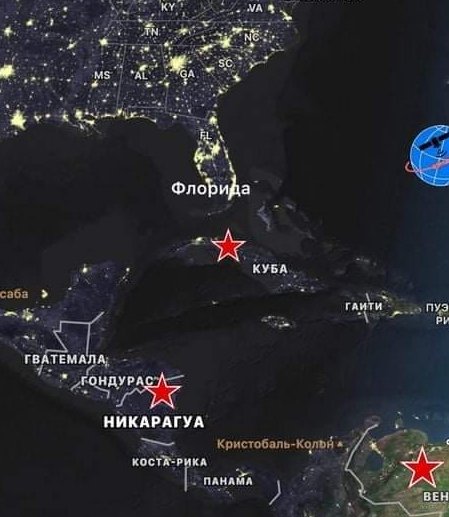Venezuelan Campesinos Denounce Diesel Price Hike, Lack of Gov't Support
An “unofficial” increase in diesel costs has set off the alarms in the countryside, already hard-hit by fuel scarcity and lack of inputs for production.
Venezuela’s Campesino Struggle Platform denounced that a number of state-owned gas stations have begun to sell diesel at US $0.50 per liter.
In a communique issued on October 26, the rural movements emphasized that elevating diesel prices represents a “devastating blow” for thousands of small and midsize food producers, with increased costs falling upon consumers.
"We strongly reject the diesel price hike and its dollarization," reads the statement published on social media. The text goes on to denounce that some "government sectors" are "sacrificing" the campesino people to attain so-called "macroeconomic balances."
"Amidst the economic war, rural workers never stopped producing food to supply the cities, while the bourgeoisie speculated, boycotted and smuggled food," stressed the statement.
The countryside organizations asked President Nicolás Maduro to clarify these measures and called for national mobilizations to prevent the new diesel cost imposition. No date for the march had been announced at the time of writing.
According to users, on Monday, a selected number of gas stations across the country began selling previously-subsidized diesel at the $0.50 “international price” after receiving authorization from a state oil company PDVSA general manager. The company’s president and the Oil Ministry have yet to confirm if the measure will be permanent and applied nationwide.
The reported diesel hike comes after PDVSA officially announced an increase in subsidized gasoline prices, which went from 0.1 cents to 2.3 cents per liter, still among the cheapest in the world. The raise came weeks after the roll-out of a new currency, the digital bolívar (BsD), which slashed six zeros off the former sovereign bolívar (BsS).
Following Washington's sanctions against the Caribbean nation’s oil industry since 2017 and the clampdown on crude-for-diesel swaps in 2020, Venezuela has faced severe fuel shortages. With diesel being crucial for food production and distribution and public transportation, the Maduro government began rationing and delivering it free-of-charge to these sectors.
Additionally, since June 2020, the Venezuelan government has implemented two-tiered fuel pricing in an attempt to ease the burden of fuel subsidies. Private gas stations were allowed to charge international prices for gasoline and diesel, while state-run pumps dispatched subsidized fuel through a monthly allowance system. However, access to the cheaper option has translated into hours or even days-long queues at pumps, with western states the most affected.
Despite the government measures to alleviate fuel scarcity in the countryside, the distribution of free diesel remained unreliable. “It seldom reached us,” Andrés Alayo, Campesino Struggle Platform spokesman, explained to Venezuelanalysis.
The rural leader added that campesinos have also seen their production affected by a lack of government support. Another communique from peasant organizations stated that they were excluded from the 2021-2022 sowing plan, a state program that distributes inputs for the winter and summer production cycles.
“We express our concern with this non-fulfillment, which aggravates the consequences of the [US] economic blockade,” reads the statement. The text reminded government officials that food sovereignty requires backing campesinos in their work. The movements requested an urgent meeting with authorities to rectify “mistakes.”
For his part, Alayo pointed out that the National Assembly (AN) had not answered the demands expressed by countryside groups following a meeting in July. During the mobilization that saw hundreds of rural workers take the streets of Caracas, campesino movements called for an end to criminalization of rural struggles and for investigations into judicialization and targeted killing cases.
"Nothing has happened. We want president Maduro's orders to be obeyed. We want justice for campesinos and [the government] to provide support for small producers," stressed Alayo.
The campesino spokesman likewise denounced that Venezuela's Cattle Ranchers Federation (FEDENAGA), a powerful landowner guild, continues to push its proposal to reform the 2001 historic Land Law. One of the strategies has been using local judicial authorities to bring charges against rural grassroots leaders. A recent case has involved Lesbia Solórzano, a founder and spokeswoman of the National Agrarian Coordinator Ezequiel Zamora (CANEZ) in Barinas state.
“They [the guild] are seeking to take back plots that used to be unproductive and were given to campesinos,” said Alayo.
In July, National Assembly’s Vice President Iris Varela and the country’s Vice President Delcy Rodríguez promised campesinos that the Land Law would remain untouched. However, popular sectors have expressed concerns over the Maduro government’s recent overtures to the private sector, with countryside movements pointing the finger at an ongoing “landowner offensive.”




